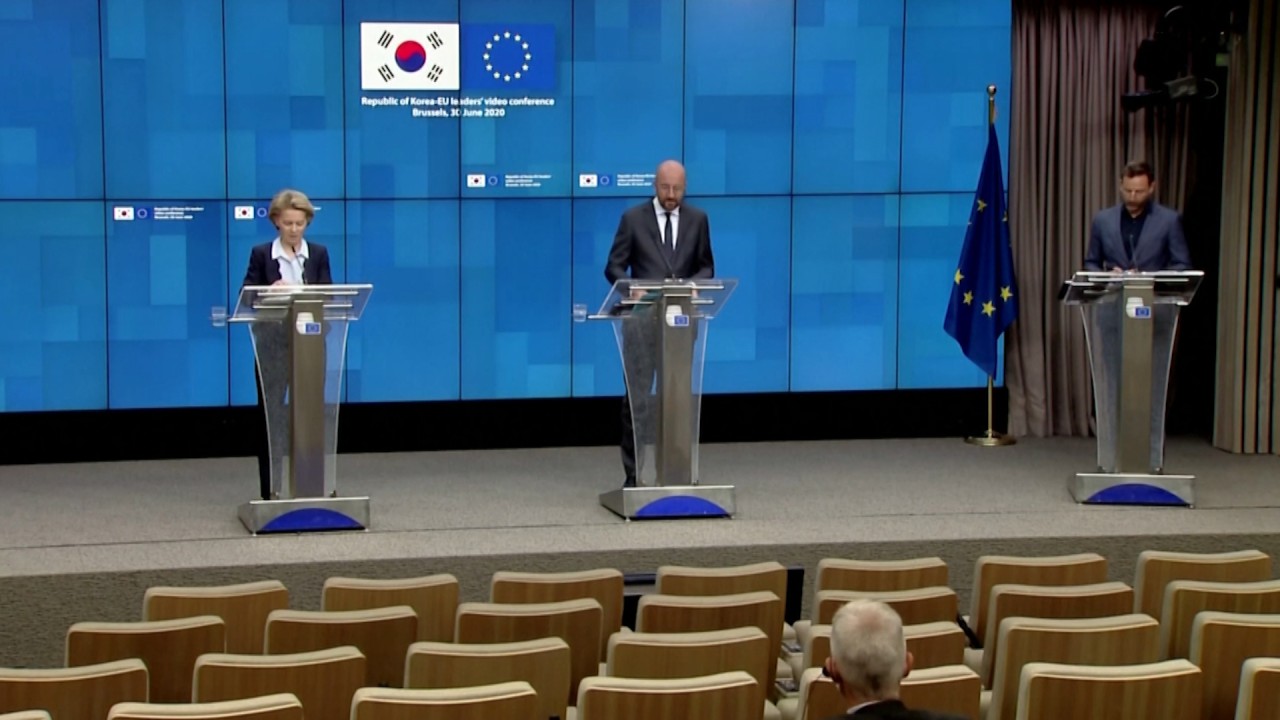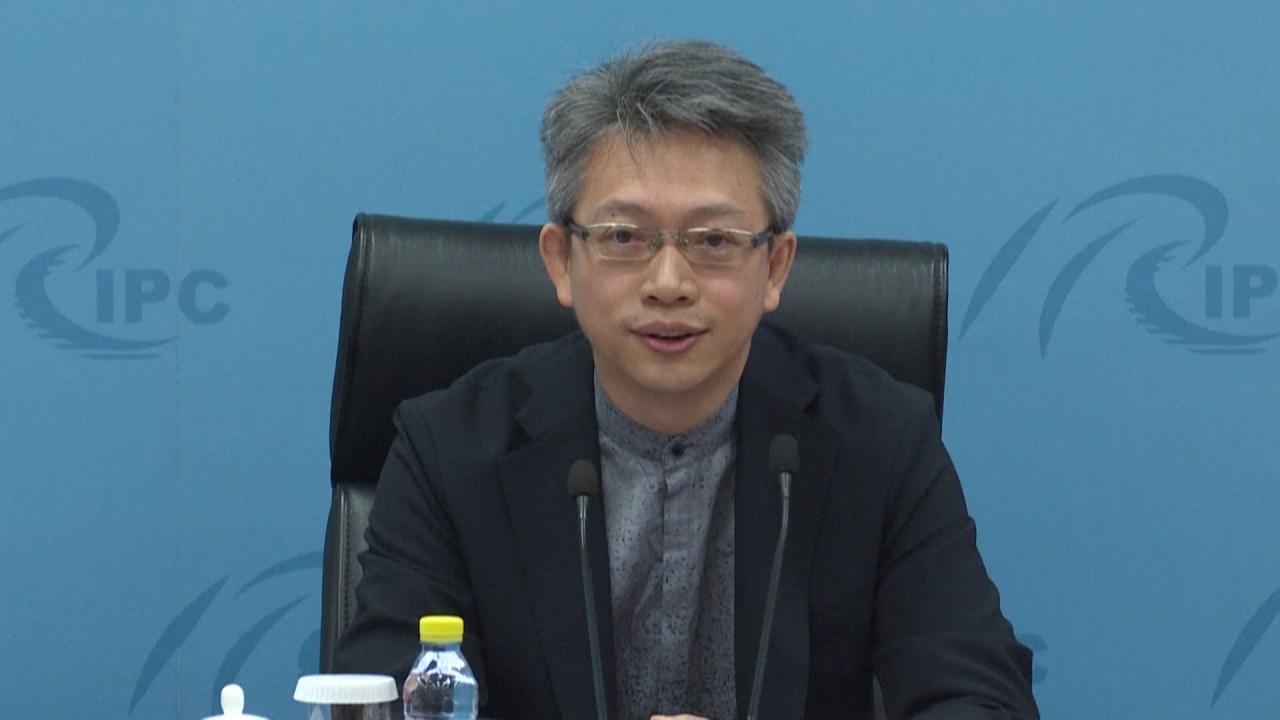
China insiders see ‘no progress’ on ending subsidies, as clock ticks on EU investment deal talks
- China has moved to solidify the grip of the state on its economy, while simultaneously trying to negotiate an investment treaty with the European Union
- Chinese analysts see little room for compromise, with Brussels demanding material reform and Beijing locked on its own path
This is the second in a series of five articles analysing the potential for an EU-China investment treaty, looking at how the negotiations are viewed in political circles within China. You can read part one in the series here and part three here, part four here and part five here.
As talks over a European Union-Chinese investment treaty reach the business end, advisers and analysts in China fear negotiations are drifting further from the economic path chosen by Beijing.
This week’s 31st round of talks for an investment deal formally known as the EU – China Comprehensive Agreement on Investment comes more than two weeks after the 30th, during which nothing of substance was achieved. It also comes as bilateral tensions simmer over the coronavirus pandemic and the national security law in Hong Kong.
It is not a problem for China to agree or make compromises and on principles on some specific or technical issues, but we have more impediments to make substantial changes or meet the other side’s demands
This is likely to be the last round of talks before the European Union breaks for summer holiday, meaning progress is imperative.
A Chinese government adviser, who requested anonymity because they are not authorised to discuss the issue in public, said progress at this late stage will be down to political decisions, while also suggesting that Beijing has been moving in the opposite direction.
“It is not a problem for China to agree or make compromises on principles and on some specific or technical issues, but we have more impediments to make substantial changes or meet the other side’s demands,” they said.
“If there has to be a breakthrough in the investment talks with the EU, we need to overcome those issues. The central [government] talked about competitive neutrality and pledged to clean up subsidies in the previous two years, but regretfully, we do not hear of any progress now.”
In the absence of the participation of a Politburo member in the talks, it would be hard for the Chinese side to make substantial decisions
The Chinese government adviser added that the European Union is strategically important for China, but that Beijing has yet to make a solid and concrete show of faith to prove this importance to Brussels.
“We need to choose whether to become more aligned with the international community and adopt the widely accepted rules, or stick to where we are,” they said.
“Issues such as state subsidies go beyond the reach of the Ministry of Commerce. And in the absence of the participation of a Politburo member in the talks, it would be hard for the Chinese side to make substantial decisions,” said Chen Long, a partner with Plenum, an independent research agency.

00:55
EU ‘deplores’ China’s decision to enact national security law for Hong Kong
In China, the talks have been kept low profile and highly confidential. They are now led by the deputy director of the Department of Treaty and Law within the Ministry of Commerce, Li Yongjie, and Maria Martin-Prat, director in the European Commission Directorate General for Trade.
Liu is also expected to hold a phone call with Valdis Dombrovskis, vice-president of the European Commission in charge of economic policy, next week, with the investment talks expected to be top of the agenda.
In the previous round of talks which spanned the end of June and start of July, discussions focused on fair competition, especially “the disciplines for state-owned enterprises, transparency rules for subsidies and the rules tackling forced technology transfers”, the European Union said.
The conditions are not ripe for enabling a durable deal to be reached between China and the EU. The EU is unlikely to accept vague commitments, or a superficial deal
For the Europeans, reining in state-owned firms and increasing the transparency of subsidies is paramount, with Brussels signalling that there will be no deal unless these demands are met.
“The trade talks between the US and China have not solved disputes on structural changes and industrial policies, where the EU shares the same position with the US,” said Shi Yinhong, a government adviser and professor of international relations at Renmin University in Beijing.
“The conditions are not ripe for enabling a durable deal to be reached between China and the EU. The EU is unlikely to accept vague commitments, or a superficial deal.”
In June, citing concerns over the coronavirus, Germany postponed a special summit to be held in Leipzig in mid-September, which was to be attended by the heads of the European Union member states and Chinese President Xi Jinping, when both sides had expected to announce substantial progress in the investment talks.
Though China said both sides still eye a conclusion by the end of the year, diplomatic sources are worried that political momentum for a substantive deal may now have decreased in Beijing after the summit was delayed.
The in-person summit may now take place in November, with both sides discussing the possibility of holding a virtual meeting between Xi and European leaders in September.
Cui Hongjian, director of European studies at the China Institute of International Studies in Beijing, said the European Union has raised additional requirements and expectations of political changes over the course of recent talks, including state subsidies.
The European side should keep its expectations reasonable. The investment deal should not overhaul China’s state-owned enterprise system nor risk changing the political system
“The European side should keep its expectations reasonable. The investment deal should not overhaul China’s state-owned enterprise system nor risk changing the political system,” he said.
Cui added that the national security law in Hong Kong may now affect the mood of the talks, which could see the European Union push for better terms on data and information flows – another thorny issue for foreign businesses working in China, many of which rail against restrictive data localisation rules.
In an indicator of how things are progressing, the latest survey from the European Union Chamber of Commerce in China said that China “had not only fallen short of state-owned enterprise reform hopes, but had actually regressed considerably”.

00:44
China rebuffs EU criticism over Hong Kong security law
The plan would strengthen the party leadership over state firms and improve “their economic competitiveness, innovation capability, the ability to control the economy, their influence and resistance to risks”, according to the official Xinhua News Agency.
The European Union Chamber of Commerce in China said any treaty should create an open market with a level playing field, “especially between European and Chinese private companies on the one hand, and China’s state-owned enterprises on the other” and said it is “positive that the EU has explicitly called for more progress on [state-owned enterprise] reform as a condition for concluding” the deal.
The first in the series analysed the negotiating positions, sticking points and geopolitical tensions, while the third part in the series looked at the political machinations in the European Union and how the bloc might react to a failure in investment talks with China. The fourth part in the series, meanwhile, looked at how the United States factors into the EU-China relationship, as Washington moves towards a frenzied election season, while the fifth part looked at Britain’s position, and expectations, going into negotiations.






